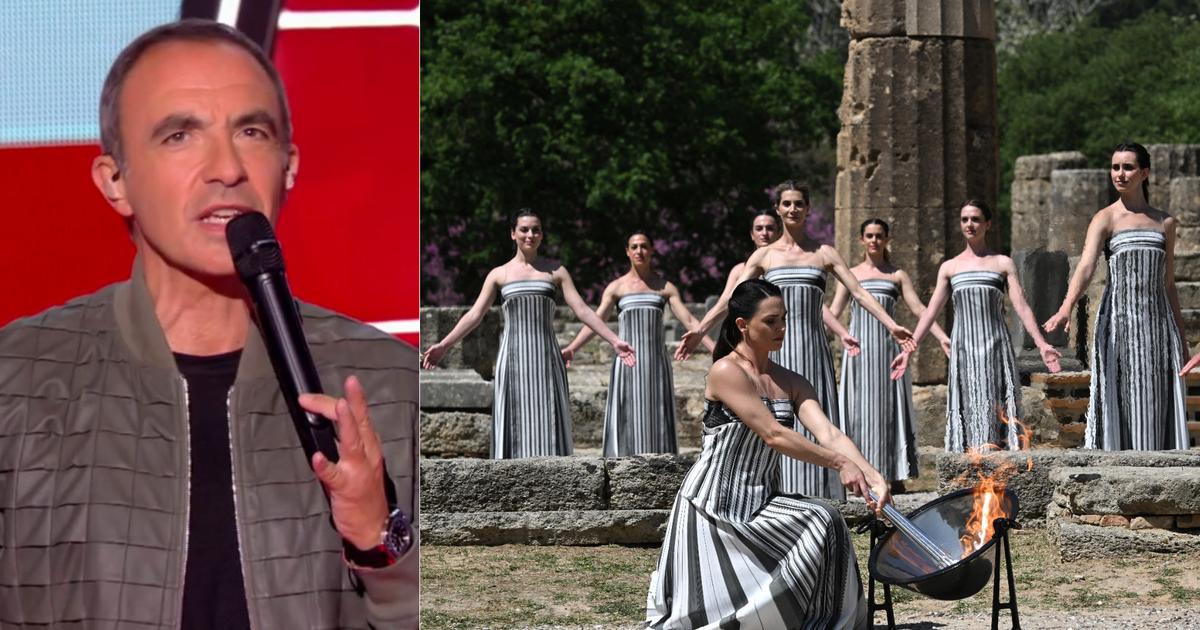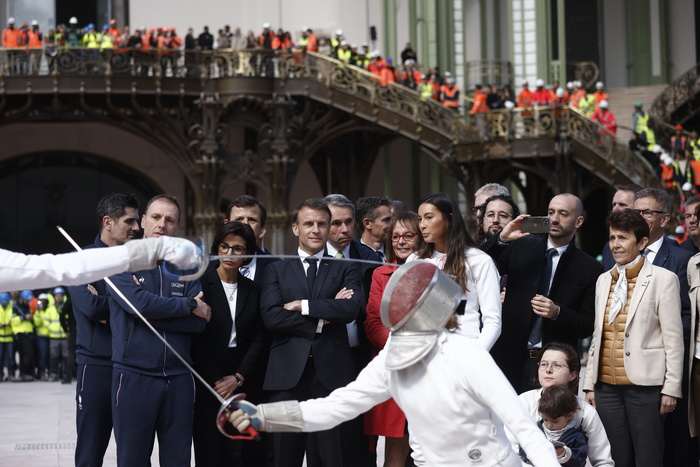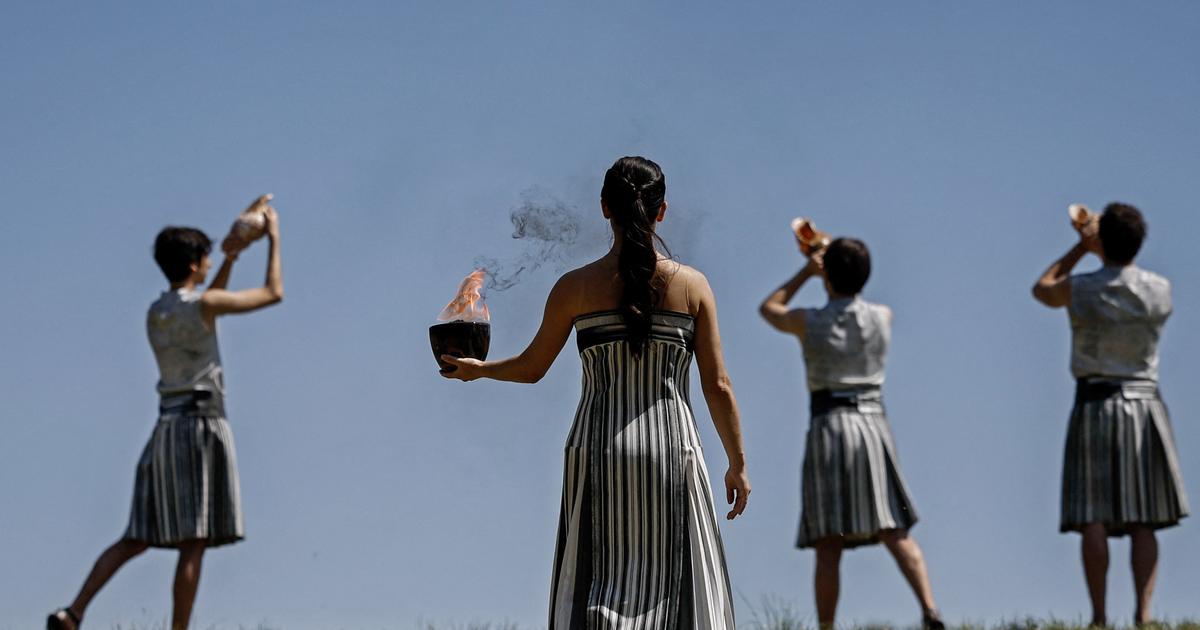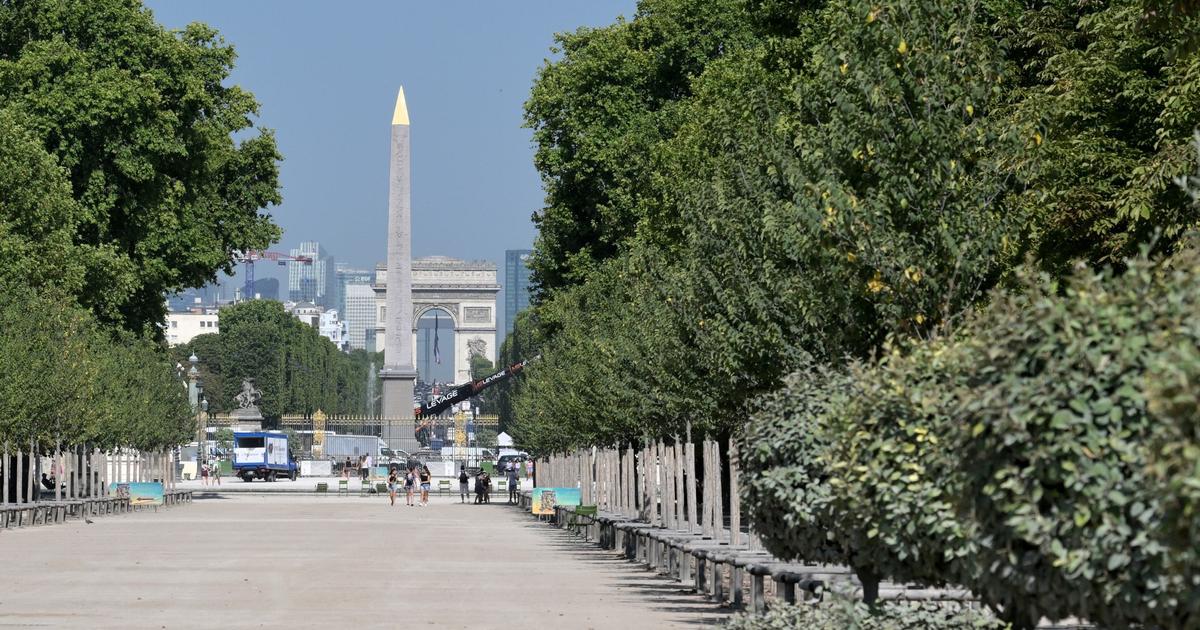Olympic Games: effect due to lack of international audience 2:04
Fukushima, Japan (CNN) -
The event was meant to open the curtain to thousands of sports fans, a celebration of Japan's recovery from a 10-year-old nuclear disaster, showcasing a country emerging with strength from years of economic pessimism.
But the Grand Start of the Olympic Torch Relay in Fukushima was closed to the public on Thursday.
This was as the members of the Japan women's soccer team prepared to begin the flame's 121-day national journey to Tokyo.
In the midst of the pandemic, anyone who was not among the 300 invited participants and officials was only able to watch a live broadcast of the event at the J-Village National Training Center in Fukushima.
In 2011, the site was used as an operational base for relief efforts after the massive earthquake and tsunami that on March 11 triggered a collapse at the Fukushima Daiichi nuclear power plant.
The Tokyo 2020 organizers chose Fukushima as the starting point for the torch relay to highlight the region's recovery from the triple disaster.
From there, 10,000 runners will carry the torch through Japan's 47 prefectures in a demonstration of national unity.
Fukushima Earthquake, Tsunami and Nuclear Disaster: Looking Back at Key Events in Japan 10 Years Later
Before and after Fukushima 0:47
But in recent weeks, the positive narrative has stalled.
Some Fukushima residents argue that the region is far from recovering.
Several famous torchbearers, who were expected to draw large crowds along the relay route, withdrew from the event, citing Covid-19 concerns.
advertising
In February, the western Shimane prefecture even threatened to cancel torch relay events if coronavirus cases did not decrease, according to local media reports, saying a decision would be made in April.
Last week, Olympic organizers said the postponed Tokyo 2020 Games, now scheduled for July 23 to August 8, 2021, would go ahead without foreign spectators.
The Paralympic Games, from August 24 to September 5 this year, would also not welcome fans from other countries, they said.
With costs and logistical challenges on the rise amid the pandemic, public support for the blockbuster sporting event has fallen to an all-time low in Japan.
Earlier this year, a poll by public broadcaster NHK showed that 77% of respondents want the Tokyo Games to be canceled or further postponed.
As the pandemic continues to shake the world and organizers grapple with the complexities of hosting the sporting mega-event later than planned, many are wondering if the Olympics have lost their luster.
A woman carries a child in a stroller in front of a torchlight relay site in the city of Naraha on March 25.
The Olympic Games, a spectacle marred by controversy
In essence, the modern Olympic Games, first held in Athens in 1896, symbolize peace, harmony and solidarity between nations, according to organizers, the International Olympic Committee (IOC).
But it would be difficult to find an example of an Olympic Games without political, economic or cultural scandals, according to Lee Jung-woo, an expert in Sports Diplomacy and International Relations at the University of Edinburgh.
Lee cites as examples the Olympic Games in Berlin in 1936, marred by Nazi propaganda, and those in Mexico City in 1968, when the Games followed a military massacre of unarmed civilians protesting the event taking place there.
10,000 torch bearers will help pass the Tokyo 2020 Olympic Games torch through 47 prefectures until the torch reaches Tokyo Stadium on July 23, 2021.
Montreal also stands out, where it took taxpayers three decades to pay off debts to host the 1976 Summer Games.
Pandemic issues aside, Tokyo 2020 has also been plagued by scandals, including the alleged plagiarism of an Olympic logo and the resignation of the organizing committee chairman over sexist remarks about women.
Another problem is that former Japanese Prime Minister Shinzo Abe, who resigned in August, initially intended to use the Olympics as a platform to build his re-election campaign, polluting the public perception of the Games early on, according to Simon Chadwick. , Director of Eurasian Sport at Emlyon Business School in France.
"I don't think there was ever a consensus or popular agreement across Japan that the country needed to host the Olympics," he said.
Fukushima 2011, between emergency and euphoria 3:32
In Fukushima, feelings towards the Olympics are mixed.
The relay is a moment of personal triumph for Takayuki Ueno, 46, a torchbearer from the city of Minamisoma, whose 8-year-old daughter, 3-year-old son and parents were killed in the 2011 tsunami. to run with a smile, so that my parents and children, whom I lost, do not worry about me, "he said.
High school student Ryoji Sakuma was only able to return to Katsurao village three years ago when evacuation orders were lifted.
The 16-year-old torchbearer helps out on his family's dairy farm and said he wanted to show the world how much Fukushima had recovered and that despite the rumors, his products are safe to eat.
But Saki Ookawara, a spokesperson for an organization that advocates for evacuees displaced by the nuclear collapse, said the government is using the Olympics as a political tool to show that Japan has overcome the aftermath of the triple disaster, when that is not strictly the case.
Although many communities have rebuilt, there are as many as 35,703 nuclear evacuees who have not yet been able to return to their homes in Fukushima prefecture as of this month, according to the local government.
"I don't understand why Japan is hosting an Olympic Games when the nuclear disaster has not been fully resolved," said Ookawara.
Tokyo 2020 Olympic Games Organizing Committee Chairman Announces Resignation Following Sexist Remarks
The approach that the Olympic Games will give to Japan
All the symbolism of the Olympics and the torch relay has changed amid the pandemic, according to Barbara Holthus, deputy director of the German Institute for Japanese Studies.
“The original idea of Tokyo was to show the world how great Japan is;
it was an opportunity for the country to reinvent itself and come together as one.
40 million visitors were expected to arrive in Japan in 2020 to give the country an economic boost, but none of that is happening.
The Olympics are failing on any stage, ”Holthus said.
The Tokyo 2020 Olympics are already the most expensive Summer Games in history, with the event's postponement of one year raising the cost to at least $ 15 billion for a total of $ 25 billion, according to Japanese media reports.
Carrying out the most complex sporting event in the world, in which more than 11,000 athletes from more than 200 countries participate who must stay safe, will not be an easy task either.
Tokyo 2020 Olympic torch relay begins 1:03
Organizers are now racing to determine how Tokyo can safely host the event, especially considering that the capital only lifted its third state of emergency on Monday after a third wave of infections.
Authorities must figure out how to protect not only athletes, but also citizens of the world's most populous metropolitan area, a daunting task considering Japan's huge elderly population and its slower-than-expected roll-out of coronavirus vaccines. .
Ayako Kajiwara, a nurse working at a hospital near Tokyo, said she hoped vaccines would be sped up in the country to better protect the population.
"Some people in Japan think the Games should be canceled [but] others have already bought tickets to events," he said.
“For me, the Olympics represent the idea that the world will come together and I would like to have some hope.
I am concerned about what will happen if it does not go ahead, as taxpayers could bear the burden, "he added.
Given that Tokyo 2020 will be the first sports mega-event held during the pandemic, the health and safety measures implemented, whether successful or not, could serve as useful markers for future international sports competitions.
"In that sense, the Tokyo anti-coronavirus program would be marked as a lasting legacy of these Olympics," said Lee.
Tokyo Olympics Get More Expensive in 2021 (December 2020 Video) 0:37
Olympic legacy
The most successful Games are those designed to leave a positive legacy, according to Chadwick, the Sports Business expert.
For example, the Barcelona Games in 1992 fueled the urban regeneration of the city, as the redevelopment of the waterfront development of the Olympic Village and the port made the beaches accessible to the public.
Metro systems were expanded and the roads connecting the city were turbocharged, according to a report published in the journal Environment and Planning.
Similarly, nine years after hosting the 2012 Olympics, London has managed to attract business and visitors to the Queen Elizabeth Olympic Park, a former post-industrial district in the east of the British capital.
Lee, the Sports Diplomacy expert, said the 2024 Games in Paris, followed by the Los Angeles Games in 2028, show that Western democracies still want to host the Olympics.
However, as host countries and their populations influence the high economic and environmental costs of the Olympics, it is authoritarian regimes that have embraced the Games as a tool of soft power.
"Emerging non-liberal powers tend to host the Olympics at all costs to impress the world public," Lee said.
For example, China had never hosted the Olympics before 2008. But some 14 years after hosting its summer Olympics, Beijing will become the first city to host the summer and winter editions of the Games, in February. By 2022, an event, if successful, that could validate its authoritarian system, according to observers.
The future of the Olympics
In 2019, the IOC drew up new rules that would require future cities running to be the Olympic venue to win a referendum at home before participating in the race.
That move was aimed at reducing costly bidding races and avoiding wasteful "white elephant" projects that cost a fortune to build but serve little long-term purpose.
For example, the famous "Bird's Nest" stadium in Beijing, built for the 2008 Games at a cost of US $ 460 million, is not widely used today.
The rule changes may also pave the way for smaller cities to join the bid for the host city, Lee said.
The IOC's choice of Brisbane, the provincial capital of Queensland, Australia, as the "preferred venue" for the 2032 Summer Games shows that the direction of the Olympics has already changed, according to Lee.
Lee said the IOC chose Brisbane because the city had already hosted the 2018 Commonwealth Games alongside the Gold Coast, also in Queensland.
“This means that Brisbane does not have to build new sports facilities and athlete villages.
This would make the Brisbane Olympics a more sustainable option than any other bidding city for the 2032 Olympics, ”said Lee.
Furthermore, Australia is one of the few safe nations against Covid-19 in the world at the moment, and this situation may have added a more competitive advantage to Brisbane's Olympic campaign, he said.
Back near Tokyo, Kajiwara, the nurse, said that last year she entered a lottery that covered 10 sports including basketball, soccer, rhythmic gymnastics and athletics, and got a coveted ticket to see the men's 100-meter final.
She just hopes she can go.
- CNN's James Griffiths, Selina Wang and Joshua Berlinger contributed to this report from Hong Kong and Tokyo.
Olympic Games













/cloudfront-eu-central-1.images.arcpublishing.com/prisa/KMEYMJKESBAZBE4MRBAM4TGHIQ.jpg)

